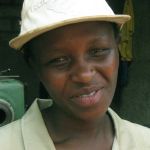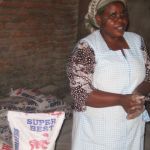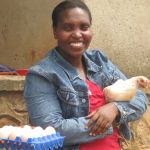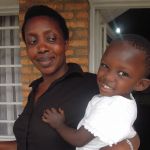This case study shares five valuable lessons for impact investors and enterprises to strengthen their impact measurement practices. The case is based on experiences testing an impact measurement framework with social enterprises in Nicaragua, Brazil and Peru. The case provides recommendations to improve the impact measurement practices of investors, as well as the enterprises they support. For investors, creating a standardized set of indicators to be shared across enterprises is beneficial for aggregating data, using resources efficiently, and facilitating shared learnings across their network of investees. For investees, impact measurement can expose vulnerabilities along the value chain that affect an enterprise, such as turnover and client loyalty.
WDI Senior Research Fellow Ted London has won the 2017 Inaugural IACMR Presidential Award for Responsible Research for his book, “The Base of the Pyramid Promise: Building Businesses with Impact and Scale.” The award was co-sponsored by the International Association for Chinese Management Research and the Community for Responsible Research in Management.
The new award recognizes high-quality research that addresses critical issues in business and society. It is through this research, the award committee said, that business schools can contribute credible knowledge that will enable business and management practices to become a force for good and make the world a better place for all.

Ted London
London’s book, published in 2016, had the specific goal of equipping enterprise leaders and their partners with tools, frameworks, and actionable strategies to build sustainable and scalable enterprises focused on the world’s poorest citizens. Along with his appointment at WDI, London also is a professor of business administration at the Ross School of Business.
“I’m extremely honored to have my book win this award,” London said. “It is especially gratifying that the award recognizes high quality, evidence-based research that seeks to impact and transform business through actionable management practices.”
On Jan. 31, London will talk about his research and book as the featured speaker at the President’s Performing Arts & Lecture Series at Oral Roberts University (ORU) in Tulsa, OK. ORU President William M. Wilson said London’s lecture will “offer a unique approach to helping the world’s poorest citizens.”
“Helping the poor is an important Biblical mandate and a focus for many students who traveled with ORU mission teams and those in the University’s College of Business,” Wilson said.
London said he is looking forward to the talk.
“I am excited to have the opportunity to share how our research on how engaging the base of the pyramid can both inspire and empower future business leaders to tackle some of the world’s grand challenges,” he said.
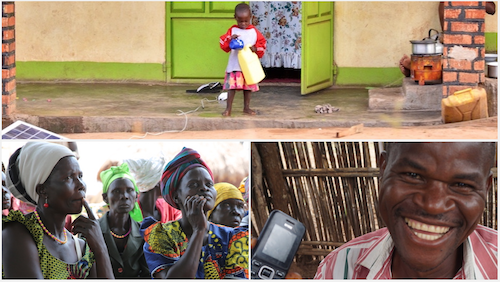
Images illustrating the most influential articles on NextBillion in 2017.
In recent years, the off-grid energy business has been one of the hottest industries in low-income economies, particularly in East Africa. But a post written by an impact investing fund explaining why it was backing off investments in the sector after being active in the space was voted by NextBillion readers as the most influential article of 2017. NextBillion is an affiliate site of WDI.
Written by three principals from venture capital firm Ceniarth, the authors aired concerns about the solar home system industry’s “hype cycle” that touched off a year-long debate on NextBillion. The post garnered slightly more than 25 percent of the readers’ votes, edging out a post on a potential new, outcome-based solution to funding and scaling poverty alleviation approaches. The third place post made the case that pushing technology for financial inclusion projects for smallholder farmers often is more harmful than helpful.
For the past six years, NextBillion editors have asked readers in December to vote on which of the 12 most-read articles by month were the most influential of the year. The votes were tallied and the winners were announced on NextBillion on Jan. 3.
NextBillion, which is managed by WDI, is one of the largest online platforms for views, jobs, events and news around business and investment solutions to poverty. Summaries of each post, written by NextBillion editors, as well as links to the winning posts can be found below.
An Impact Investor Urges Caution on the ‘Energy Access Hype Cycle’
Ceniarth, an impact investment group, had been fairly active in the energy access sector for at least three years. But in 2017, the three principals with the firm – Greg Neichin, Diane Isenberg and Mary Roach (now at Loowatt), explained why they were stepping back from off-grid energy venture capital investments in emerging markets. Their concerns about the solar home system sector touched off the longest-running debate this year on NextBillion, as several sector investors echoed their concerns, while others, including some entrepreneurs, rebutted them.
Key quote: “… it is not easy for most investors to publicly acknowledge concerns about sectors where they have made financial commitments. It poses a risk to the capital that they have already extended in the market. As we maintain current financial exposure to the solar home system sector, it would be economically rational for us to keep our heads down quietly.
As a mission-oriented firm, however, we felt it was important to transparently share our insights even if they are in conflict with our financial interests. We will continue to try to live up to this promise as we work collaboratively to fund solutions that deliver critical and sustainable improvements in rural livelihoods.”
The graduation approach is a promising solution to poverty, with proven results. But it’s difficult to scale, and traditional funding models lack the flexibility and performance incentives to drive its impact, since funding is typically tied to activities rather than outcomes. Dianne Calvi, president and CEO of the NGO Village Enterprise, discusses an intriguing new solution: the US $5.26 million Village Enterprise Development Impact Bond (DIB), which she calls “the first-ever outcome-based development impact bond” focused on poverty alleviation in Africa. Can it provide a model for future funding of anti-poverty programs?
Key quote: “Critics of impact bonds have noted that their set-up costs are high and their scale is limited. We believe this has mainly been because previous approaches have insufficiently leveraged true market forces, and instead have relied on a central and over-engineered approach. We believe that if donors come together to commit significant outcome funds and specify clear and realistic conditions for a provider to earn payments, capable service providers will have the incentive to build capabilities to mobilize the necessary working capital and negotiate terms with investors.”
If each and every one of the approximately 500 million farmers who feed about 2 billion people received a mobile phone tomorrow, it might not improve their lives. For many who have to navigate spotty networks, unreliable apps and various levels of financial literacy, a mobile phone can be more burden than blessing. Alexandra Fiorillo, the founder and principal at GRID Impact, explained why financial inclusion projects need to avoid pushing technology for its own sake.
Key quote: “Although the benefits of mobile money are frequently touted, it isn’t always the best solution. In fact, research shows that many people save more and spend less when handling physical cash. … Instead of pushing technology for technology’s sake, financial inclusion projects ought to seek diverse solutions that are appropriate and accessible for customers based on their needs – which may mean providing a choice of cash modality (e.g. hard cash, mobile money and card-based solutions).”
Nobel laureate Sir Angus Deaton talked about poverty and what role NGOs, governments and the private sector should play in order to alleviate it during an Oct. 5 event that was the culmination of WDI’s year-long celebration of its 25th anniversary.
Deaton’s talk, held in the Robertson Auditorium at the University of Michigan’s Ross School of Business, reflected much of his study of the role global development aid may have had in exacerbating problems related to poverty rather than reducing them.
In 1980, Deaton noted, there were 2 billion people living in poverty. By 2012, that number was less than a billion.
“Nothing like this has ever happened in human history before,” he said.
Free, or at least freer, markets are a reason for this reduction in the number of people living in poverty. Likewise, globalization and technical change was vital as well.
“Without globalization, this enormous improvement in world poverty just would not have happened,” Deaton said.
Economists calculate that poverty could be eliminated if every adult in Europe and the U.S. donated about 30 cents a day. But people aren’t stepping up to help. Deaton said some posit that’s because people don’t want to or just don’t care. But he said his view and that of most economists is that “we do care, but we’re thinking about it wrongly.”
Deaton also said he believes the key that is holding poverty efforts back is politics and governance. He said if government is not working for the people, it won’t help raise them out of poverty.
People “need to help to the extent we can,” Deaton said. “But is aid effective?”
Deaton argues that aid is undermining the creation of institutions that are required for development. He said non-governmental organizations, or NGOs, are motivated by reducing poverty. But if the government is an extractive one, that is – taking money meant for aid for other purposes, “it’s very hard to see what NGOs can do about it.”
The private sector, however, has been a key to reducing global poverty, Deaton said. Another positive factor has been knowledge transfer, such as U.S. business schools that have exported entrepreneurship curriculum and training around the world.
The problem of development “is largely one of government failure and of extractive institutions,” Deaton said.
Businesses, he said, have a strong interest in making governments work better for the people.
After his remarks, WDI President Paul Clyde led a panel discussion about global poverty with Deaton, Renuka Gadde, vice president-Global Health at Becton Dickinson, David Lam, research professor at the U-M Institute for Social Research and Jan Svejnar, professor of Global Political Economy and director of the Center on Global Economic Governance at Columbia University.
Before Deaton spoke, U-M President Mark Schlissel recognized WDI’s anniversary and Bill Davidson’s vision back in 1992.
“He recognized that the private sector had to play a part in helping countries transition their economies to the free market,” he said.
Schlissel said he regrets never meeting Davidson but has heard “many wonderful things about him.” He said if Davidson were in attendance today, he would “tell him how proud we are that he made all of this possible.”
In introducing Schlissel, Ross School of Business Dean Scott DeRue said WDI’s and U-M’s vision are closely aligned. In addition to making U-M a thought and education leader, De Rue said Schlissel wants “the university to serve society and really engage with society in meaningful ways to elevate our impact in the state of Michigan, the United States and across the world.”
WDI today unveiled a new book for its 25th anniversary that commemorates the Institute’s history, leaders, partners and inspiring work around the world.
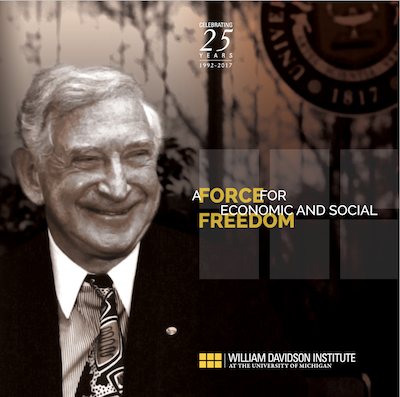 The book, “A Force for Economic and Social Freedom,” recounts the Institute’s founding and the dynamic life of its founder, Bill Davidson. The book also looks at the four people who have led WDI during its 25 years, and how each shaped the Institute in their own unique way.
The book, “A Force for Economic and Social Freedom,” recounts the Institute’s founding and the dynamic life of its founder, Bill Davidson. The book also looks at the four people who have led WDI during its 25 years, and how each shaped the Institute in their own unique way.
Four of WDI’s initiatives – Education, Healthcare, Performance Measurement and Scaling Impact – are profiled, including the goals of each and examples of some of their successful work.
The book also reflects on WDI’s 25-year engagement with the University of Michigan community – its faculty and students. Some of the Institute’s many collaborations with U-M faculty are featured, as are the numerous global internships and MBA student teams that WDI has sponsored over the years. The uplifting stories of several past WDI interns and how the opportunity to work abroad changed their lives, also can be found in the book.
The WDI Global Impact Speaker Series is discussed in the book, as well as two specialty areas of the Institute – case publisher WDI Publishing and the news and analysis site NextBillion.
The book concludes with a look to the future, and what the next 25 years and beyond hold for WDI.
The Institute received design and editorial assistance for the book from Michigan Creative, U-M’s in-house agency. Click here to download an electronic version of the book.
WDI’s Performance Measurement Initiative (PMI) specializes in:
PMI’s extensive portfolio of projects includes work with private sector, non-profit, and government partners and has taken place across many regions and industries. For more information on PMI, please see the PMI Capability Statement below.
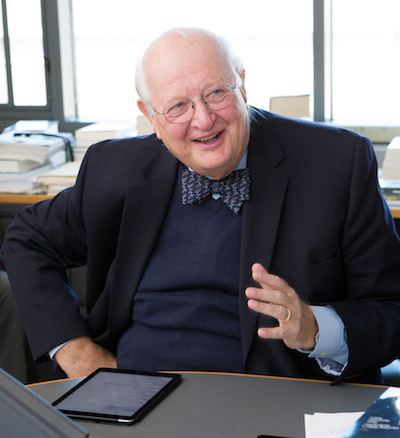
Angus Deaton. (Image credit: Princeton University).
The William Davidson Institute at the University of Michigan will host an Oct. 5 talk and discussion with Sir Angus Deaton, a Nobel Prize-winning economist whose work has changed how many think about both global wealth and poverty.
The event, which is free and open to the public, will take place at 4 p.m. in Robertson Auditorium at U-M’s Ross School of Business. A panel discussion will follow Deaton’s talk, which is titled “What Should We Do About Global Poverty?” The event is part of WDI’s year-long celebration of its 25th anniversary. The panel discussion will include Renuka Gadde, vice president-Global Health at Becton Dickinson; David Lam, research professor at the U-M Institute for Social Research; and Jan Svejnar, professor of Global Political Economy and director of the Center on Global Economic Governance at Columbia University.
Deaton is the Senior Scholar and Dwight D. Eisenhower Professor of Economics, and International Affairs Emeritus at the Woodrow Wilson School of Public and International Affairs in the Economics Department at Princeton University. His research includes work on poverty, inequality, health, well-being, economic development, and randomized controlled trials.
He received the Nobel prize in 2015 for his research into how the consumption of goods and services plays a critical role in human welfare. In 2016, Deaton, a native of Scotland, was knighted by Queen Elizabeth II for his service in the fields of economics and international affairs.
Perhaps the best summary of his work on economic health and development is his 2013 book, The Great Escape: Health, Wealth, and the Origins of Inequality. The book carefully documents the remarkable progress in income and health that has taken place, especially over the past 50 years. Despite large-scale increases in income around the world that have pulled millions of people out of poverty, Deaton details why gaping inequality remains, both between and within nations. That inequality, decades if not centuries in the making, can be understood not only by poring over economic data, but also pairing economic research with health data. For instance, Deaton looks at metrics such as the height of women from many countries over the course of decades as a key marker of economic progress.
The book also explores how global development aid may have exacerbated problems relating to poverty rather than reducing them. Deaton’s book combines respect for the progress made with an open questioning of gaps in the progress and efforts to address those gaps. He gives suggestions on how the global economy can engage those displaced and left behind by reforming incentives to companies and lifting trade restrictions in the developing world.
“Professor Deaton is an outstanding economist whose careful research and empirical methods have informed and challenged our thinking around global health and poverty in low- and middle-income countries. He doesn’t accept easy answers and carefully assesses what works and what doesn’t work,” said WDI President Paul Clyde. “Deaton’s thinking is very relevant to WDI’s mission and we’re honored he can join us for our 25th anniversary event. We’re looking forward to his speech and a lively discussion that will be illuminating for students, faculty, and anyone interested the development of low- and middle-income countries.”
This non-confidential version of the report presents the research design and methodology used by the Performance Measurement Initiative in an impact assessment study PMI conducted of Semilla, a project funded by Danone Ecosystem Fund with local partners in Mexico City that employed mainly women from low-income households to sell Danone products through a last mile distribution model.
The study was divided into two parts: a strategic analysis to gain a deep understanding of Semilla’s holistic set of impacts, followed by a performance analysis to identify and track potential improvements in key indicators over time. This methodology ensured that all stakeholders’ voices were heard and incorporated into solutions to improve Semilla’s business model. This version of the report also discusses the data collection experience and the analysis strategy used. It also includes the final survey used to collect the quantitative and qualitative data (found in Annex C). Please note that all confidential material associated with the report has been removed in the document.
Rebecca Baylor, PMI Research Associate, shared how WDI guided three micro-franchise organizations in Latin America through a 6 phase research pilot in order to help them internalize their own impact measurement processes at the “Growing the Impact of Microfranchises and Inclusive Distribution Networks in Latin America and the Caribbean” conference in Asunción, Paraguay in July 2017. The international event was sponsored by Fundación Paraguaya, with financial support from Inter-American Development Bank and the MIF, to encourage and promote cost effective impact measurement strategies for scaling up inclusive distribution business models in Latin America and the Caribbean.
Presentation (English Version)
Presentaion (Spanish Version)
For full program of the event, click here.
WDI managed the Goldman Sachs 10,000 Women Entrepreneur Certificate Program in Rwanda, equipping 330 women entrepreneurs with the knowledge and skills needed to expand their enterprises. In cooperation with the School of Finance & Banking in Kigali, the program was offered 12 times from 2008 to 2015. During the six-month certificate program, participants created a detailed, actionable business plan. Sessions included: business planning, marketing, finance, accounting, and management. The program concluded with a business plan competition. Graduates were eligible for wraparound services and attended annual reunions.
Here are mini-documentaries featuring five of the program graduates.
